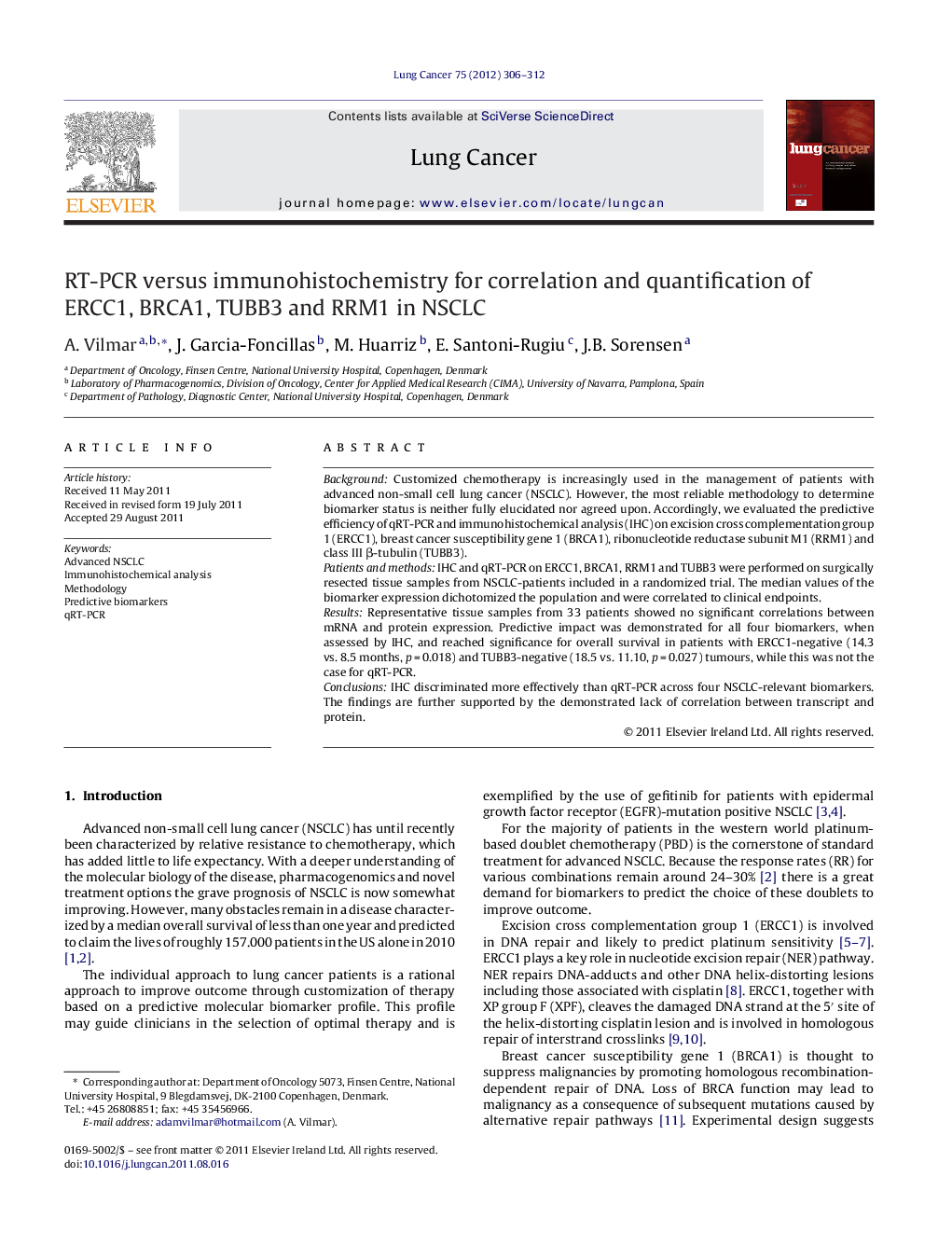| Article ID | Journal | Published Year | Pages | File Type |
|---|---|---|---|---|
| 2141802 | Lung Cancer | 2012 | 7 Pages |
BackgroundCustomized chemotherapy is increasingly used in the management of patients with advanced non-small cell lung cancer (NSCLC). However, the most reliable methodology to determine biomarker status is neither fully elucidated nor agreed upon. Accordingly, we evaluated the predictive efficiency of qRT-PCR and immunohistochemical analysis (IHC) on excision cross complementation group 1 (ERCC1), breast cancer susceptibility gene 1 (BRCA1), ribonucleotide reductase subunit M1 (RRM1) and class III β-tubulin (TUBB3).Patients and methodsIHC and qRT-PCR on ERCC1, BRCA1, RRM1 and TUBB3 were performed on surgically resected tissue samples from NSCLC-patients included in a randomized trial. The median values of the biomarker expression dichotomized the population and were correlated to clinical endpoints.ResultsRepresentative tissue samples from 33 patients showed no significant correlations between mRNA and protein expression. Predictive impact was demonstrated for all four biomarkers, when assessed by IHC, and reached significance for overall survival in patients with ERCC1-negative (14.3 vs. 8.5 months, p = 0.018) and TUBB3-negative (18.5 vs. 11.10, p = 0.027) tumours, while this was not the case for qRT-PCR.ConclusionsIHC discriminated more effectively than qRT-PCR across four NSCLC-relevant biomarkers. The findings are further supported by the demonstrated lack of correlation between transcript and protein.
